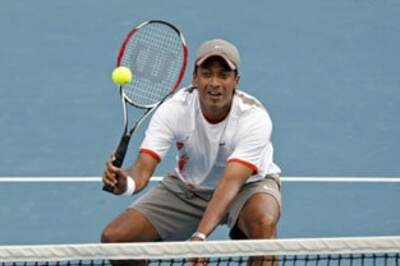
views
Electronics occupied prime position of interest at the inaugural address of the 22nd Annual Conference of Indian Nuclear Society (INS) held in the city on Thursday. Organised by the INS and the Electronic Corporation of India Limited (ECIL), Dr R Chidambaram, principal scientific advisor to the Central Government, stressed on the need for Indians to latch onto the nano-electronics bus and ensure the mistake of having missed the micro-electronics bus last century did not repeat itself. “The efforts of the electronics community in the country should be synergised to produce indigenous research equipments for our laboratories in all spheres of development, rather than depend on imports,” he said. He also stressed on the need to enhance the industry-academia interaction to ensure the thermodynamic balance between the two helped better information flow which would ultimately lead to timely delivery of useful electronic and control instrumentation products. Dr Chidambaram also spoke about the National Knowledge Network (NKN), an information pathway formed between all major cities of the country, with the longest one being between Mumbai and Kolkata. “The NKN connects different research centres in the country and helps transmit useful information.” He showed a slide comparing the NKN and its connections with major research labs across the world.Dr Srikumar Banerjee, chairman AEC and secretary DAE, who also spoke on the occasion, chose to highlight the achievement of ECIL in many of India’s space, aviation and research programmes. “India, as a nation used indigenous electronics technology in the 70s and 80s developed by ECIL. But today, we see that there is an over dependence on foreign electronics products and as a result, the R&D dept in the country has taken a backseat. There has to be local demand if we expect our electronics industry to survive in such competitive circumstances,” he added. He cited the example of the defence, aerospace and atomic spheres in the country which display continued growth due to efficient R&D and planned manpower induction. “Currently India has no prominent production centre for indigenous production of MOS, thyristor, BGT, surface mounted resistors etc. We have to reverse that trend to ensure we can meet our research and development requirements”, he added. The function also witnessed the handing over of awards to engineers and various scientific organisations.

















Comments
0 comment